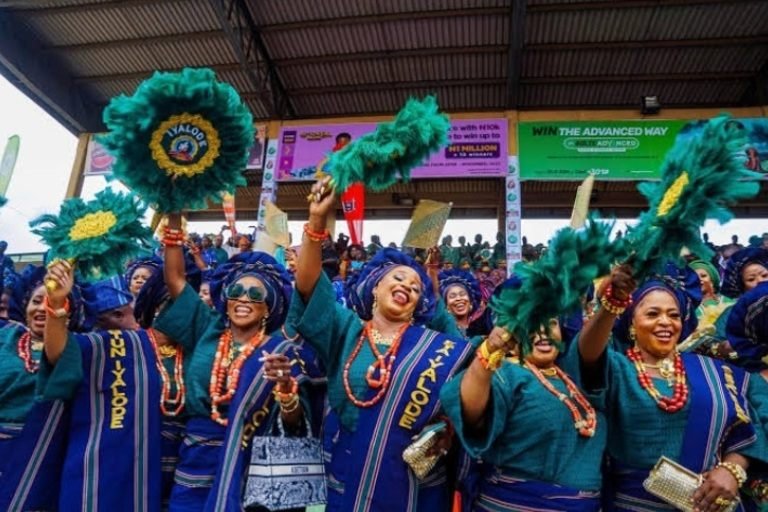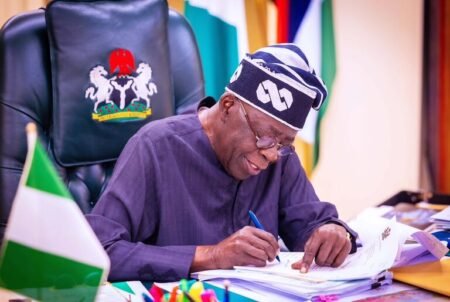The 2025 Ojude Oba Festival showcased a vibrant display of the rich culture of the Ijebu People 0f Ogun State, Nigeria.
The vent held every year, is a monument to the Ijebu people’s rich cultural heritage and dedication to maintaining and enjoying their customs.
Whether you are a first-time visitor or a frequent attendee, the festival provides an unparalleled opportunity to witness the brightness and oneness of Yoruba culture.
It is a spectacular cultural celebration of the Ijebu people in Ogun State, Nigeria, held on the third day after Eid-el-Kabir, which typically concludes the Muslim feast.
It is one of Nigeria’s most important festivals celebrating culture and tradition.
Ojude Oba, which translates as ‘The King’s Court’, was founded by a group of Muslim faithful to honour Ijebuland’s traditional monarch.
The celebration dates back to the nineteenth century, when Islam swept throughout Ijebuland.
Originally, Ojude Oba, which translates as “The King’s Forecourt”, was a small gathering of Muslim believers who came to pay respects to the reigning Awujale.
However, that little meeting quickly drew national and worldwide attention, with business implications.
Oba Sikiru Adetona, the Awujale of Ijebuland, now leads Ojude Oba at the Awujale Pavilion in Ijebu Ode.
The event, which is well-known for its bright display of various Yoruba dress, takes place on the third day after Eid-el-Kabir, a Muslim feast known as Sallah or ‘Ileya’ in the South West.
The clothing worn by various groups not only demonstrates class but also recounts stories about the Yoruba culture.
The event was cancelled between 2020 and 2021 to ensure safety during the COVID-19 pandemic.
On June 18, 2024, members of the Egbe Jagunmolu Obinrin paraded to pay tribute to the King, Awuja Ile of Ijebuland, at the annual Ojude Oba celebration in Ijebu Ode.
Despite this, the event has grown in cultural, social, economic, and political relevance.
This year’s version is expected to attract hundreds of participants, including notable figures from around the country, dressed stylishly in native textiles such as Adire, Aso Oke, Agbada, and Iro and Buba.
The event typically includes impressive horse riding by various groups, cultural dance, and musical performances by various artists.
The horse riders, who represent several Balogun lineages, are dressed fashionably. The families include Balogun Adenuga, Balogun Alatise, Balogun Adesoye, Balogun Alausa, and Balogun Kuku.
It also contains ‘Regbe Regbe’, a colourful march by age groups from different families—a demonstration of the Yoruba heritage and an honour to the Ajuwale with dance, prayer, and gifts.
Although the parade is a demonstration of culture and elegance, the participating groups, which include Gbobaniyi, Bobagbimo, Gbobalaye, and Obafuwali, are largely from Ijebu and compete to outshine one another and win prizes from various sponsors.
Interestingly, Ojude Oba provides enormous economic potential for the Ijebu people, particularly in the sectors of hospitality and tourism, as large hotels and guesthouses are typically completely booked by both local and international tourists.
Corporate organisations also benefit from the brand presence they establish for their enterprises by sponsoring various aspects of the festival. The streets leading to the festival site are decked with various logos and signs, giving guests a sense of what to expect.
Because of the national and global significance of Ojude Oba, many security agencies typically deploy security to protect lives and property.











